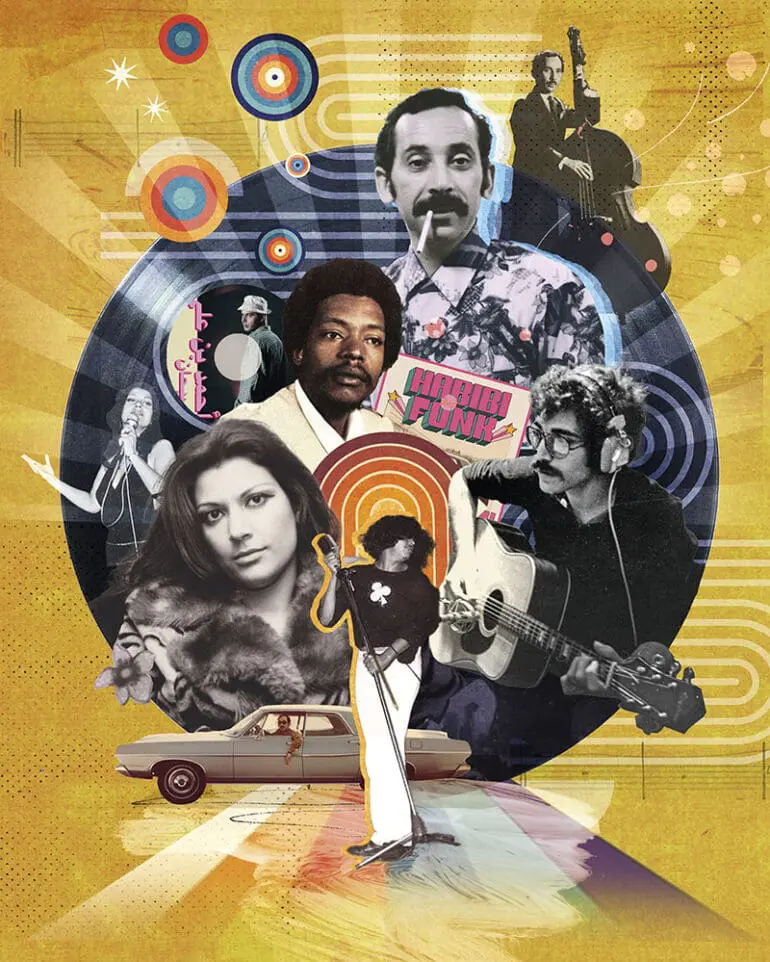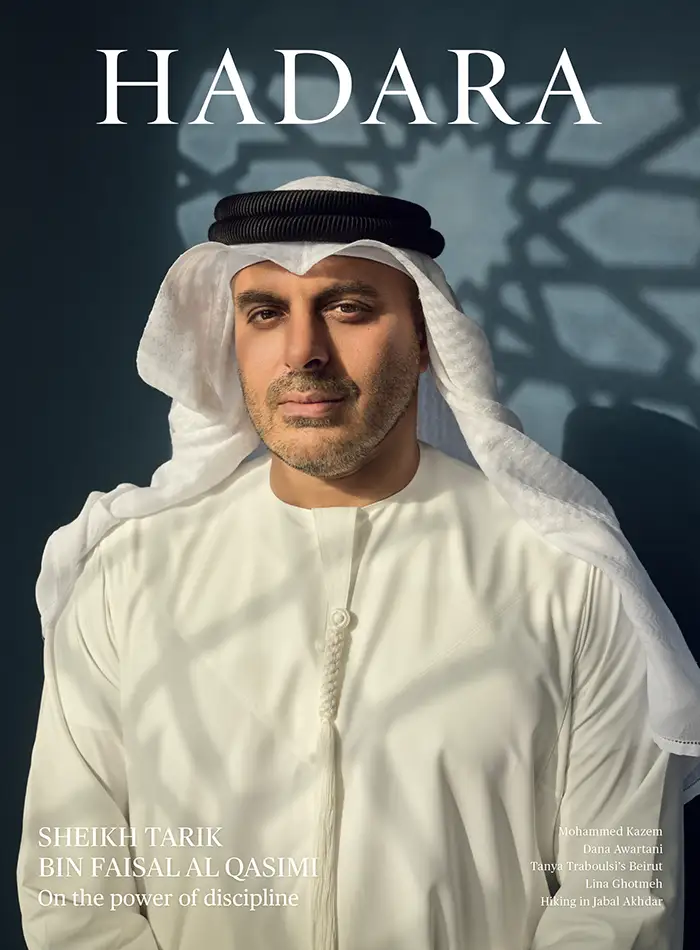Eclectic Sounds from the Arab World
Record label Habibi Funk revives Arabic music’s forgotten sounds.
BY TOM FABER
PHOTO ILLUSTRATION BY SARAH HANSON
At the end of a work trip to Morocco in 2012, Jannis Stürtz found himself walking through the rundown alleyways of Casablanca’s medina. There he came upon a shop packed to the rafters with broken electronics and, in the back, a few dusty crates of vinyl records.
The owner, a former record-label manager, let Stürtz dig through the stock. One cover caught his eye, by a singer from the 1970s called Fadoul, who credited James Brown as a writer. Stürtz bought the record and, finally listening to it back home in Berlin, was awestruck by Fadoul’s explosive Moroccan twist on funk. It was like nothing he’d heard before.
Stürtz ran a record label, Jakarta Records, and was seized by a desire to share Fadoul’s music more widely. First, he needed to track down Fadoul. It took him two years to learn that the artist had passed away long before, but he did manage to find where his family had lived. Following countless phone calls and taxi rides, even showing the record sleeve to random people in cafés, he tracked down Fadoul’s sister. She was thrilled to share stories of her brother’s life and supported the re-release of Fadoul’s music—45 years after it was first recorded.
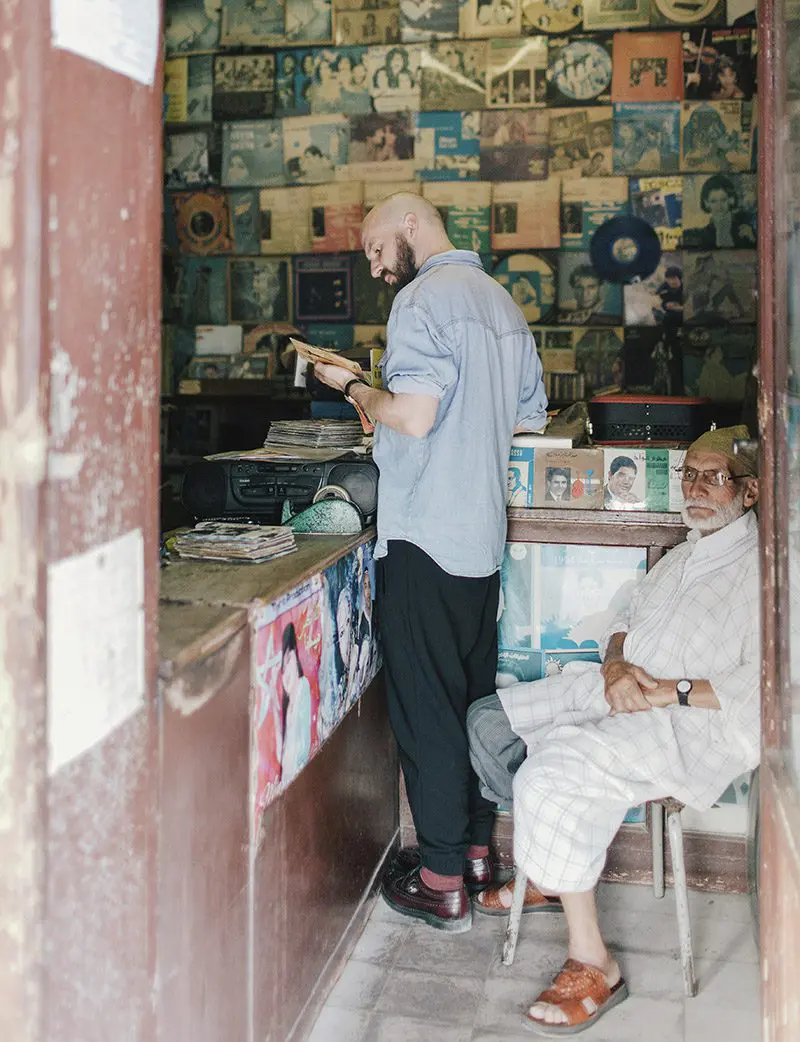
A LEGACY OF SONIC MIGRATION Illustration: Habibi Funk’s range is broad, from Sudanese jazz to Casablanca funk, but the albums are united by a cross-cultural curiosity. Releases include Fadoul, who credited James Brown as a writer and whose album, Al Zman Saib, became the cornerstone of Habibi Funk; Rogér Fakhr, whose songs are a melange of folk, jazz and soul; Egyptian singer Maha, whose 1979 album Orkos was reissued in 2022; Algerian soundtrack composer Ahmed Malek; and Ibrahim Hesnawi, the father of Libyan reggae. This image, Habibi Funk founder Jannis Stürtz sifts through piles of old vinyls in a record store in Agadir, Morocco. Photo of Stürtz by Fabian Brennecke.
The resulting album, Al Zman Saib, became the cornerstone of Habibi Funk, a record label launched in 2015 and specialised in reissuing the work of Arab musicians, largely recorded in the 1970s and 80s, which was influenced by various Western genres.
The range is broad, from Sudanese jazz to Tunisian disco, but the albums are united by a cross-cultural curiosity and an earthy dose of soul. At a time when contemporary Arabic music is growing in popularity worldwide, with artists like Saint Levant, Wegz and Felukah performing internationally, Habibi Funk has garnered a loyal and diverse fanbase. In addition to running the label, Stürtz maintains a busy touring schedule as a DJ (he hosted the label’s first live music show at London’s Jazz Café last August), organises exhibitions, and maintains a Spotify playlist of eclectic music from the Arab world with over 100,000 followers.
When he’s scouring antique shops and record stores in Cairo or Beirut for potential reissues, Stürtz brings his portable turntable and can sit for hours, working his way through teetering stacks of old vinyls, many of which have not been heard for decades. Often, he knows whether he’s interested after just a few seconds of listening. He seeks out songs that blend local musical influences with an ear to the outside world. Previous releases include Al Massrieen, an Egyptian band active in the 1970s and 80s, fluent in sleek disco; Issam Hajali, a Lebanese artist whose haunting folk songs recall the great American singer-songwriters of the 1970s; and Ahmed Ben Ali, who fuses traditional Libyan rhythms with reggae for a dance-floor-friendly confection.
It can require herculean effort, or luck, to track down the artists and get their agreement for a reissue. Stürtz only found the family of Algerian soundtrack composer Ahmed Malek by coincidentally meeting a neighbour of the artist’s daughter. For Stürtz, love for the music makes it worth the effort. “In the end, what we do as a label is become a bridge that connects music which deserves to be heard to a bigger audience,” he says.
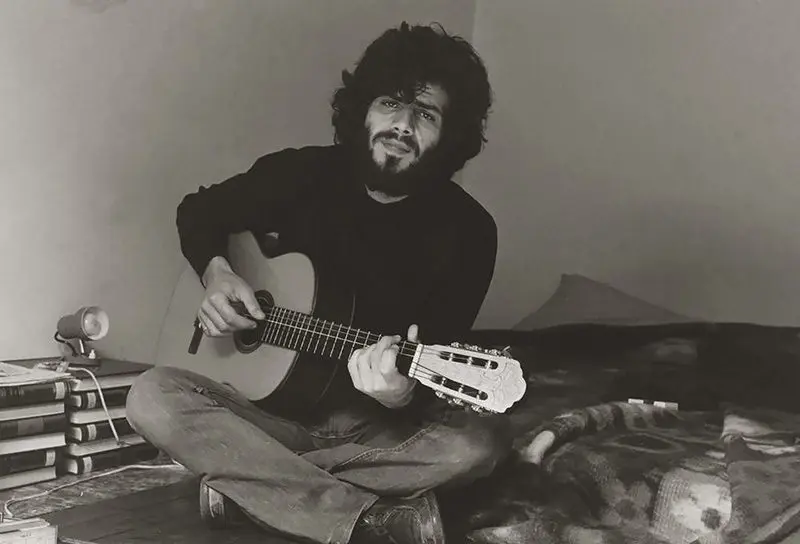
Issam Hajali, a Lebanese artist whose haunting folk songs recall the American singer-songwriters of the 1970s. Photo courtesy of Habibi Funk.
Over the years, building relationships with musicians and collectors has made this job easier. “Now when I try to find an old musician from Lebanon, before I start Googling there are people I can ask and there’s a good chance one of them will know who I’m talking about,” Stürtz says.
It was a recommendation from Issam Hajali that led him to Rogér Fakhr, whose album Fine Anyway came out on Habibi Funk in 2021 (the songs, a melange of folk, jazz and soul, were recorded in the 1970s). Stürtz also visits private music collectors in their homes—they might not be selling, but they let him listen and take notes. “Contrary to what people assume, the three most impressive collections of Lebanese music are still in Lebanon and in Lebanese hands,” he says.
Charif Megarbane, a Lebanese artist whose 2023 album Marzipan was Habibi Funk’s first contemporary release, says many of his fellow artists had never heard some of the label’s releases from their own country, some of which were distributed in limited numbers during the civil war. “The label introduced Lebanon to roses we didn’t know we had in our garden,” he says.
Newcomers to the label are often surprised that there is funk from Morocco, jazz from Sudan, disco from Tunisia. No Habibi Funk release adheres strictly to the common understanding of “Arabic music”. Rather, the catalogue interrogates whether such a general term is meaningful at all, showing that the Arab world contains multitudes of sounds and styles, and that its music has always been in dialogue with the rest of the world. “The influence of people like James Brown and Bob Marley was global; just as important for a kid in the suburbs of Tripoli as it was for a kid somewhere in Paris,” he says.
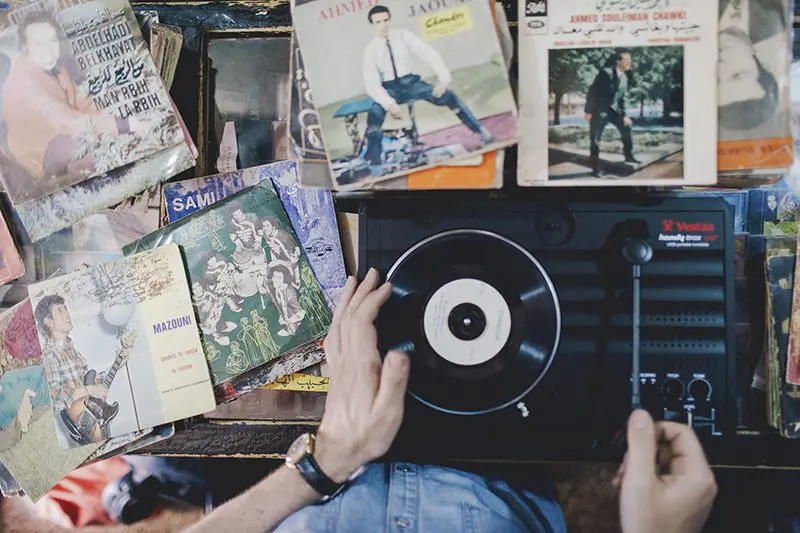
When he’s hunting in record stores in Cairo or Agadir, Stürtz brings his battery-powered turntable. He’s listening for local influences brought together with something from outside. Photo: Fabian Brennecke.
Stürtz is sensitive to Europe’s history of appropriation of resources, and culture, from the Global South. “We are aware that there is a historic pattern of exploitation in these exchanges, and we try to not replicate [them],” he says. In practice, this means allotting half the profits from each record to the artist and only licensing their music for a limited time, rather than buying publishing rights in perpetuity. Sometimes he goes further: Stürtz has drawn on the label’s loyal fanbase to raise funds following disasters in Libya, Palestine and Lebanon.
This approach extends to how the label presents artists. Stürtz provides context for each release with beautiful booklets included with the albums—materials he hopes to compile into a magazine in the future. He invites artists to help choose how they are represented, which surprises some. When Stürtz asked Egyptian singer Maha, whose 1979 album Orkos was reissued by the label in 2022, whether she was happy with the photo he’d chosen for the album cover, she replied that in all her years as a musician she had never been asked. Megarbane, too, welcomed the creative control: “There was nothing Orientalist about the approach that Jannis presented to me,” he says.
Habibi Funk’s success has not been the result of careful planning. “We’re not very strategic,” Stürtz says. “When we think about whether to work on an album, the question of whether it’s going to sell never comes up. Luckily we have a loyal audience that follows us with each release.” A compilation of Libyan music will be their next release. Stürtz is also considering the possibility of releasing music from the Gulf—he has some promising cassettes from Bahrain and Kuwait in his collection, and visits the tape vendor Shabab al Wadi Recordings, active since the 1970s, whenever he visits Sharjah.
Stürtz is surprised by how far Habibi Funk has come. “Back when we were trying to find Fadoul,” he says, “I never anticipated the label would reach this level of longevity and consistency.”

